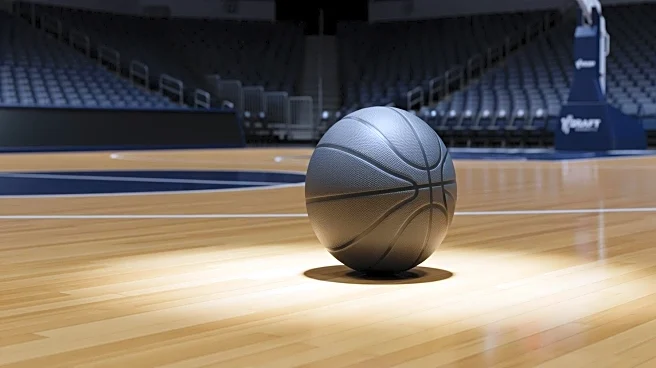What's Happening?
The WNBA is currently negotiating a new collective bargaining agreement, a major storyline for the league this year. As part of the ongoing developments, ESPN has released a mock draft for the 2026 WNBA season, projecting UCLA's Lauren Betts as the potential
No. 1 pick. Betts, a senior center, has been recognized for her impressive performance, averaging 20.2 points per game and 9.5 rebounds, while shooting 64.8% from the field. The draft lottery and expansion drafts for Toronto and Portland are set to occur before the 2026 draft, alongside a significant free agency period. The mock draft also highlights other top prospects, including Olivia Miles from TCU and Azzi Fudd from UConn, who are expected to be high picks.
Why It's Important?
The WNBA's upcoming draft and CBA negotiations are crucial for the league's future, potentially affecting player salaries, team structures, and overall league competitiveness. The draft is an opportunity for teams to strengthen their rosters, with players like Lauren Betts offering significant potential due to her size and scoring ability. The CBA negotiations could lead to changes in player contracts and benefits, impacting the league's attractiveness to new talent. The expansion drafts for Toronto and Portland indicate growth and increased market presence for the WNBA, which could lead to more fan engagement and revenue opportunities.
What's Next?
The WNBA will continue its CBA negotiations, with the deadline looming. The outcomes of these talks will likely influence the league's operations and player relations. The draft lottery and expansion drafts will set the stage for the 2026 season, determining team compositions and strategies. Teams will be closely monitoring college performances to finalize their draft choices, while players will aim to enhance their draft stock through their collegiate play. The league's expansion and CBA outcomes will be pivotal in shaping the WNBA's trajectory in the coming years.
Beyond the Headlines
The expansion of the WNBA to new cities like Toronto and Portland reflects a broader trend of increasing interest in women's sports, which could lead to more investment and sponsorship opportunities. The CBA negotiations also highlight the ongoing efforts to improve player welfare and league sustainability, addressing issues such as salary equity and career longevity. These developments could set precedents for other women's sports leagues, influencing how they approach growth and player relations.

















